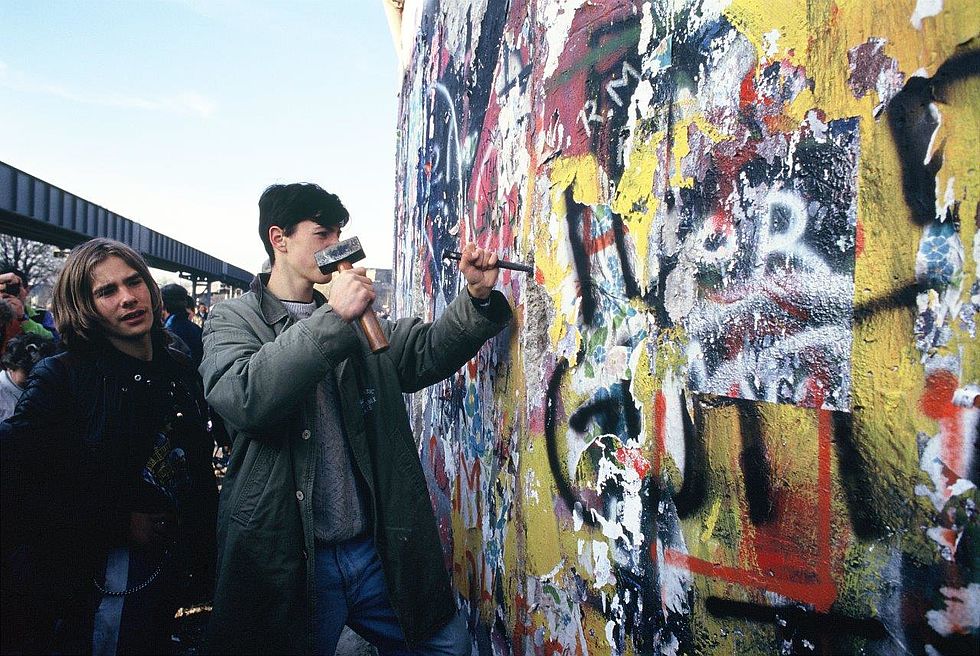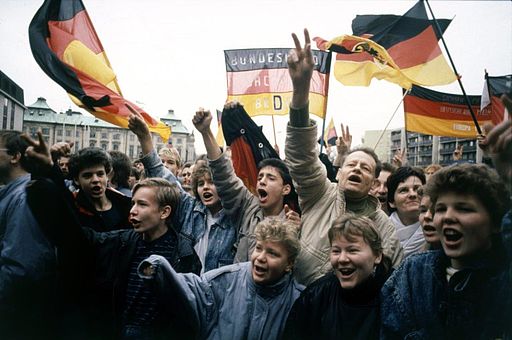
No experiments
From November 1989, the mood on the streets changed. More and more demonstrators were chanting, "We are one people", instead of the earlier slogan "We are the people". Few people still believed the state could be reformed. At the first free parliamentary elections in the GDR in March 1990 the population took a decision in favour of German unification.
Some of the new civil rights organisations founded in autumn 1989 campaigned for reforms within the GDR and for gradually bringing the two German states closer together. In East and West, unification sceptics were afraid the GDR would be "sold out" and warned against a revival of right wing nationalistic ideology in Germany. Yet with economic and political crisis looming, people were losing patience and calls for German unification were mounting.
West German politicians also initially envisaged phased unification of the GDR and Federal Republic - but popular pressure forced decisions to be made more quickly. The first free democratic elections in the GDR were held on 18 March 1990; they were won by the Alliance for Germany coalition, which stood for rapid unification of the two German states.

